Join MCSP, partners and US Senator Susan Collins for the last event in a three-part Hill series on advancing maternal, newborn and child survival. […]
June 1st: Building Political Will for Gender Equity to Achieve MNC Survival Goals


Join MCSP, partners and US Senator Susan Collins for the last event in a three-part Hill series on advancing maternal, newborn and child survival. […]
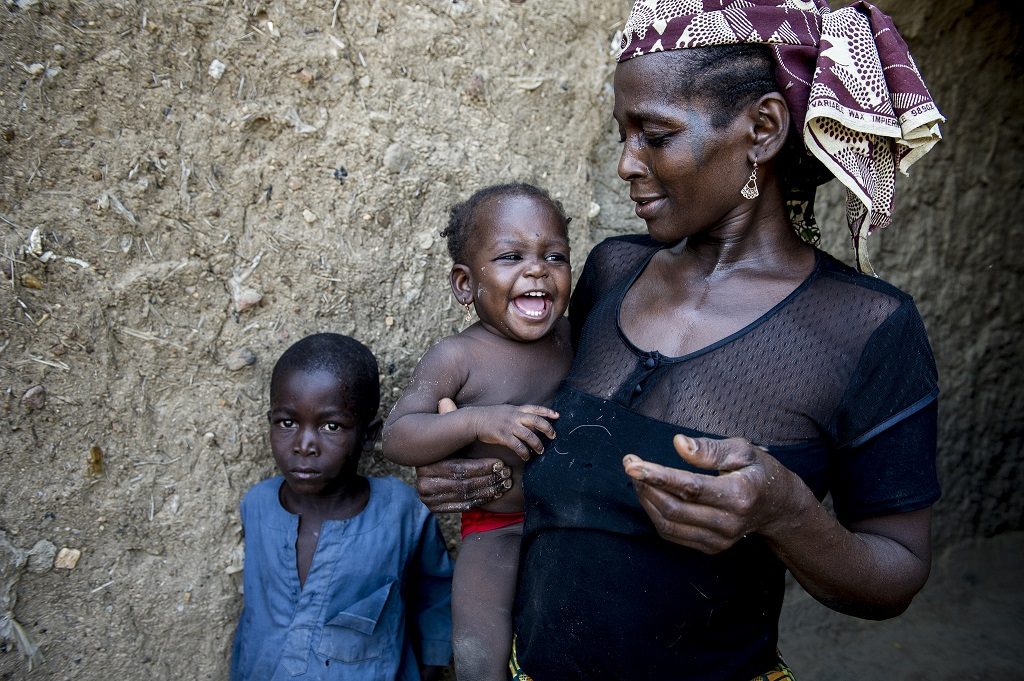
Join MCSP and partners for a candid discussion on scaling-up “what works” for women and children the world over. […]
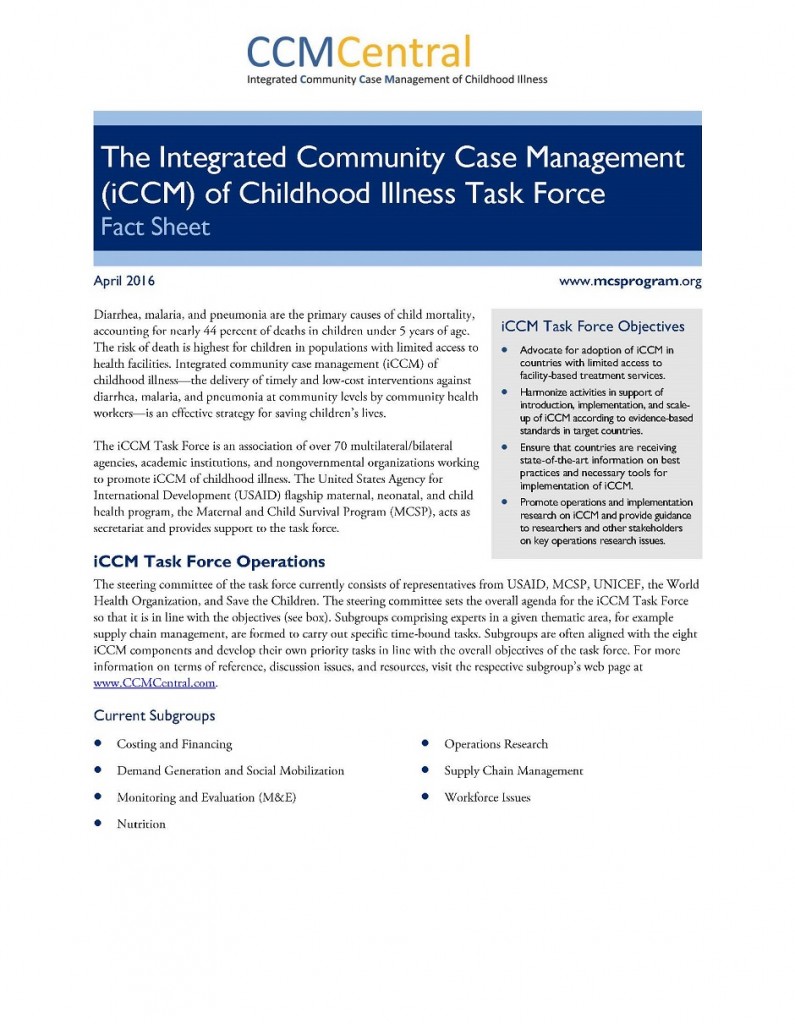
This document outlines the four objectives of the iCCM Task Force, an association of 70 multilateral/bilateral agencies, academic institutions, and nongovernmental organizations. MCSP acts as secretariat and provides support to the Task Force. […]
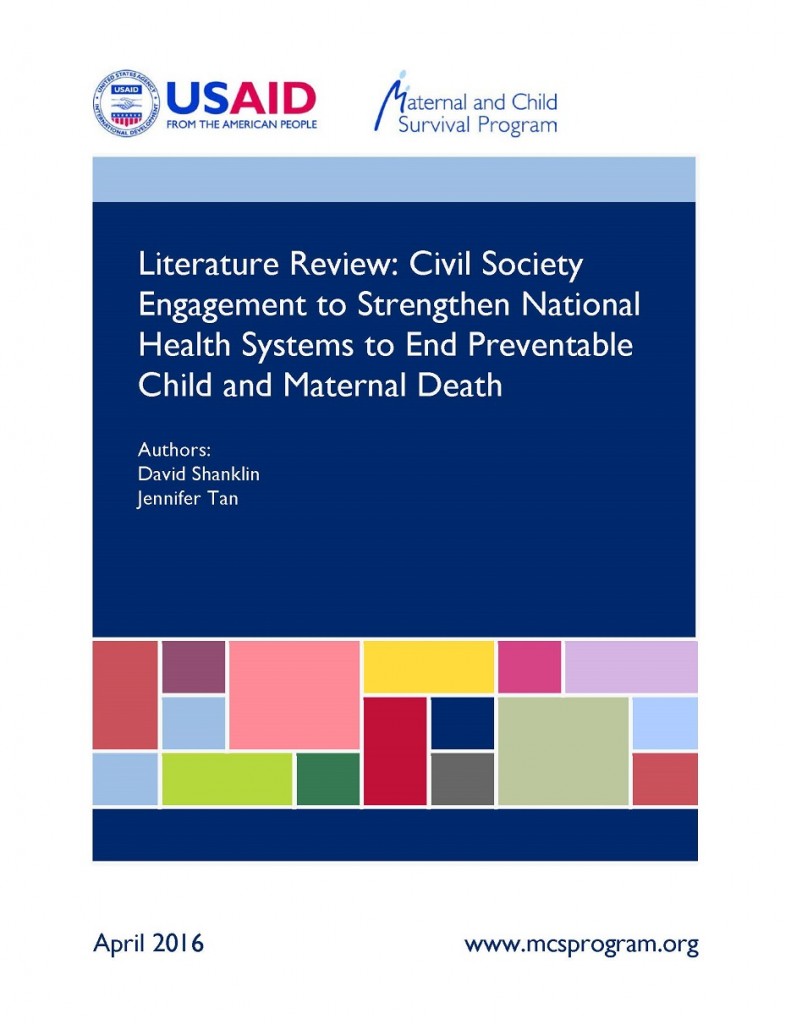
This document summarizes a literature review on civil society engagement to strengthen national health systems to end preventable child and maternal death. The role of civil society in national health system strengthening remains ill-defined as disagreements continue to exist concerning the roles and responsibilities of donors, governments and civil society itself. The authors aim to […]
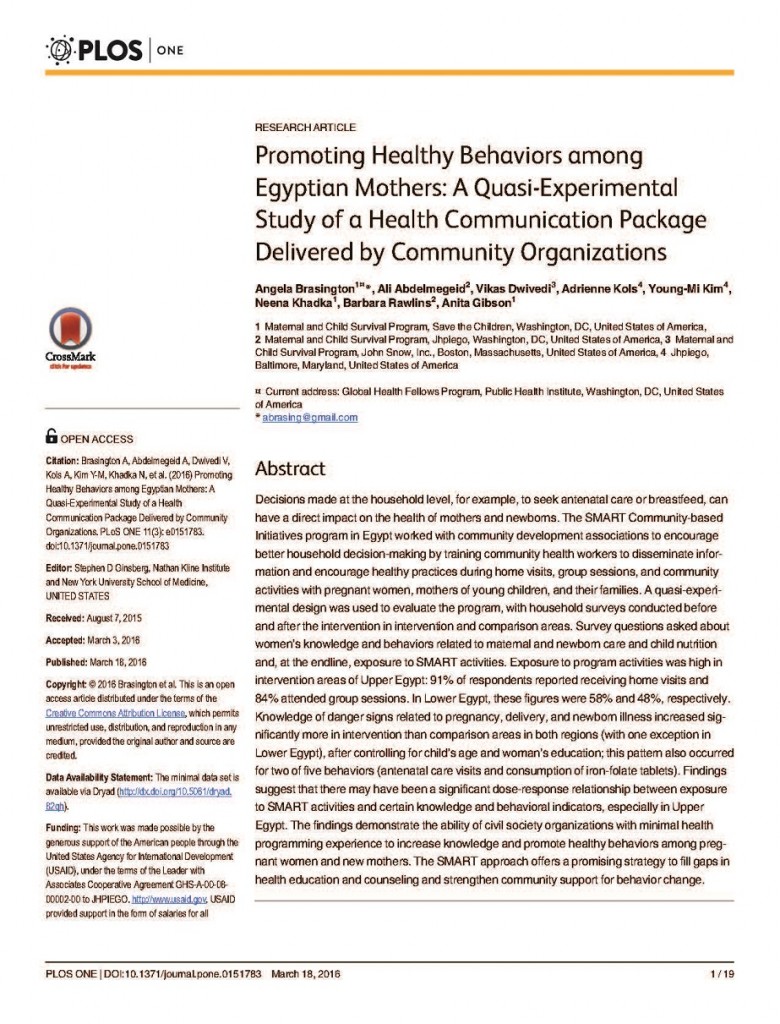
This MCSP co-authored article, published in the journal PLOS ONE, examines how decisions made at the household level—to seek antenatal care or breastfeed, for example—can have a direct impact on the health of mothers and newborns. The SMART Community-based Initiatives program in Egypt worked with community development associations to encourage better household decision-making by training […]
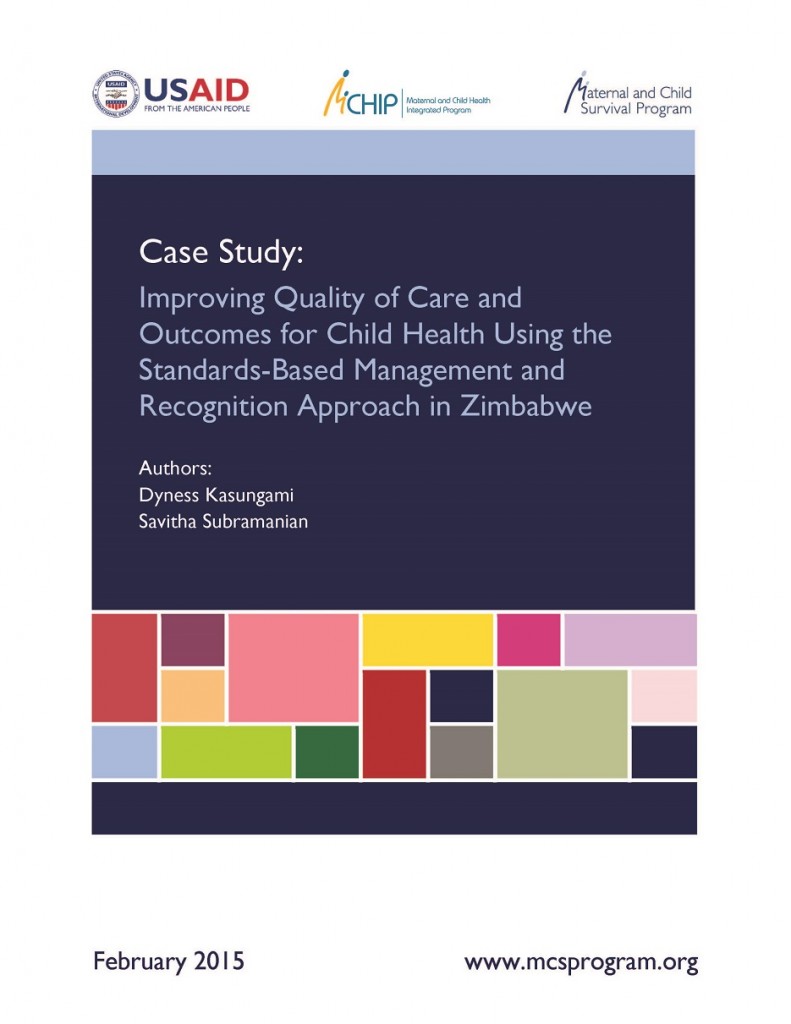
This case study aims to document the application of Standards-Based Management and Recognition (SBM-R) as a quality improvement approach to the case management of childhood illness in Zimbabwe through USAID’s predecessor flagship Maternal and Child Health Program. The lessons learned about the implementation process, success factors, and challenges will illumine the adoption of SBM-R to […]
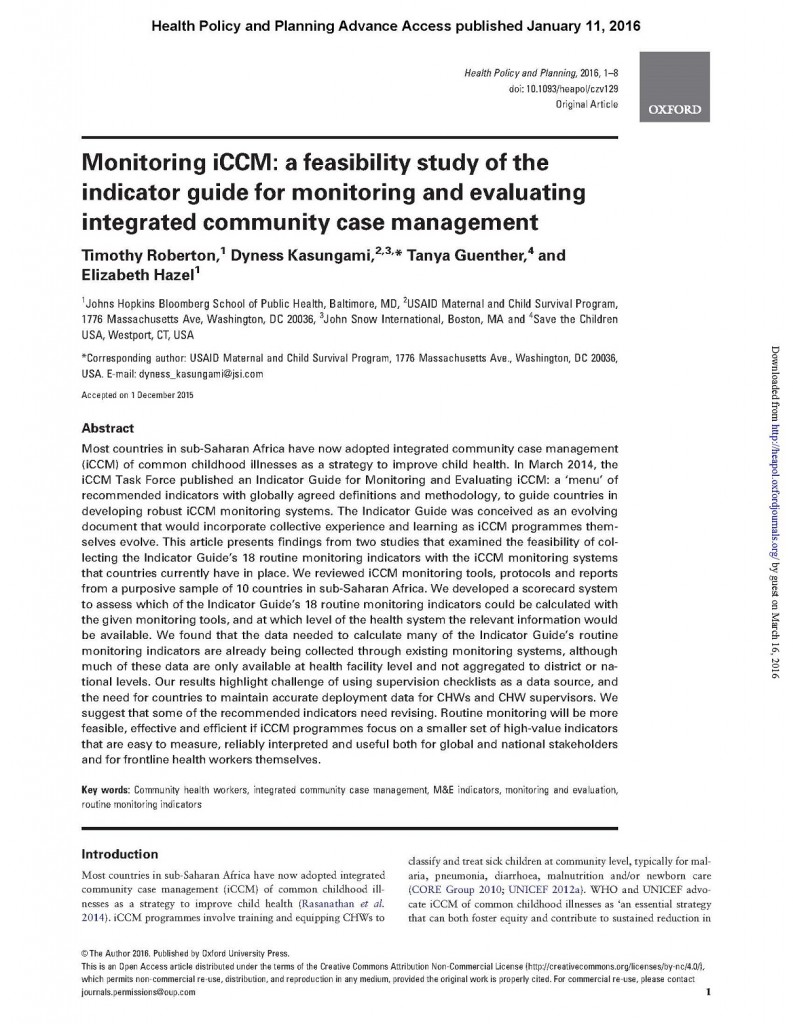
In March 2014, the iCCM Task Force published an Indicator Guide for Monitoring and Evaluating iCCM: a ‘menu’ of recommended indicators with globally agreed definitions and methodology, to guide countries in developing robust iCCM monitoring systems. The Indicator Guide was conceived as an evolving document that would incorporate collective experience and learning as iCCM programs […]
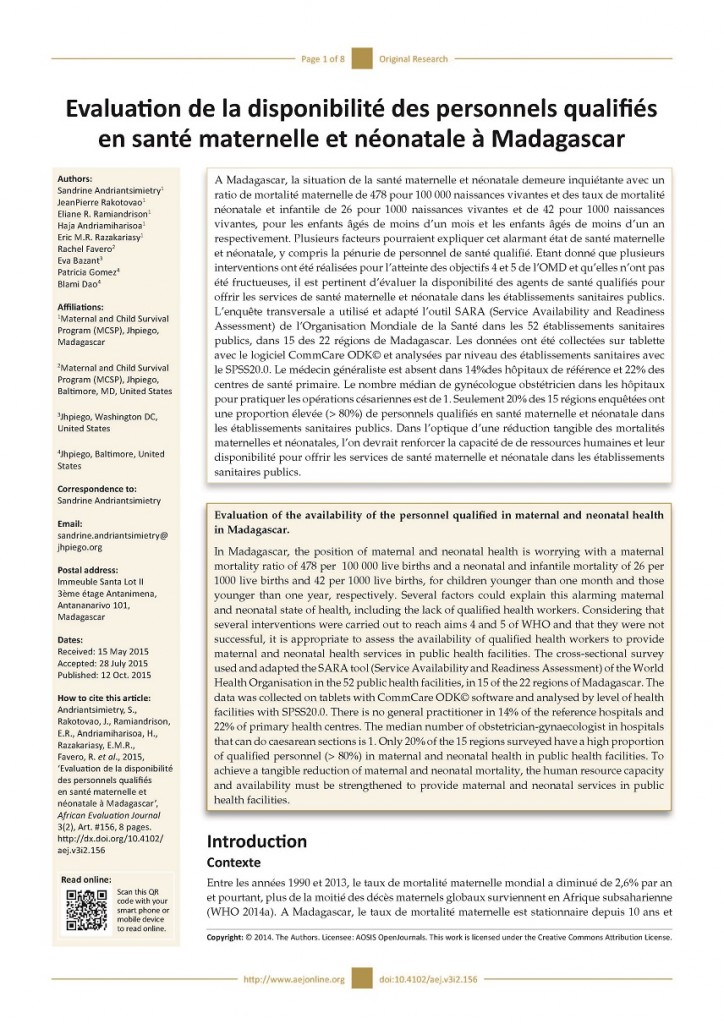
This article, published in French in the African Evaluation Journal, highlights the findings of a cross-sectional survey of 52 health public facilities in 15 of the 22 regions of Madagascar. […]
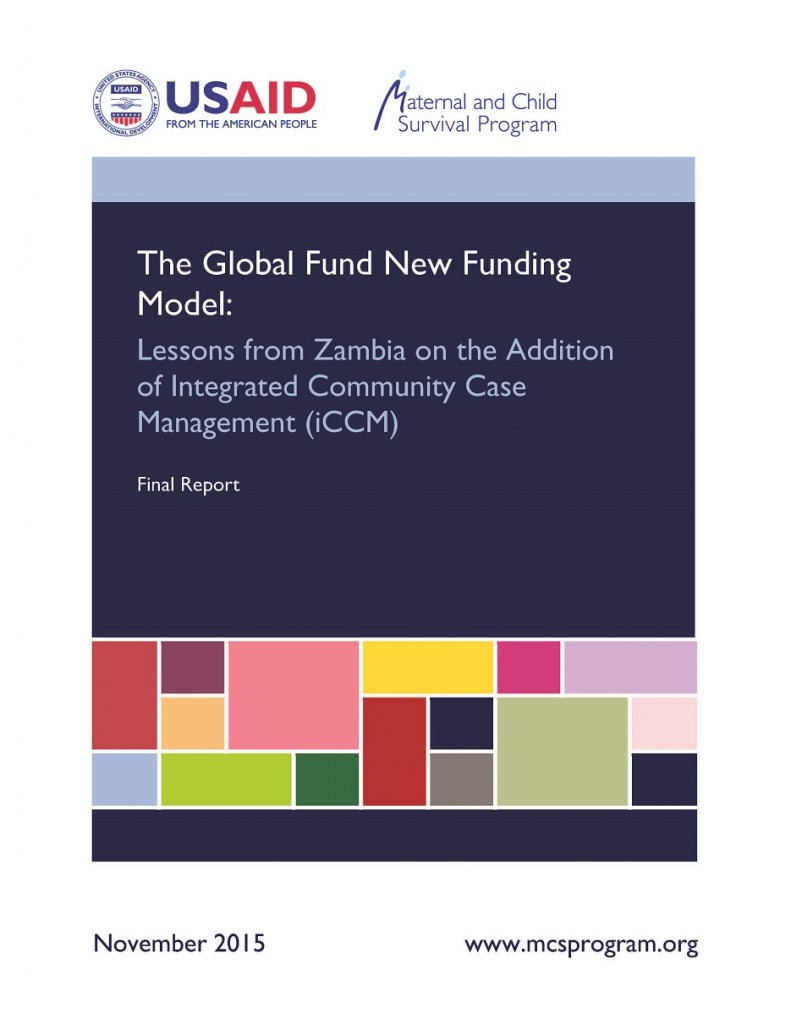
This case study reviews Zambia’s experience adding the integrated community case management (iCCM) strategy into the Global Fund New Funding Model (GFNFM) concept note for malaria. This case explores some of the challenges experienced by and lessons learned from the Zambia experience, and discusses broader issues related to the process of GFNFM concept note development […]
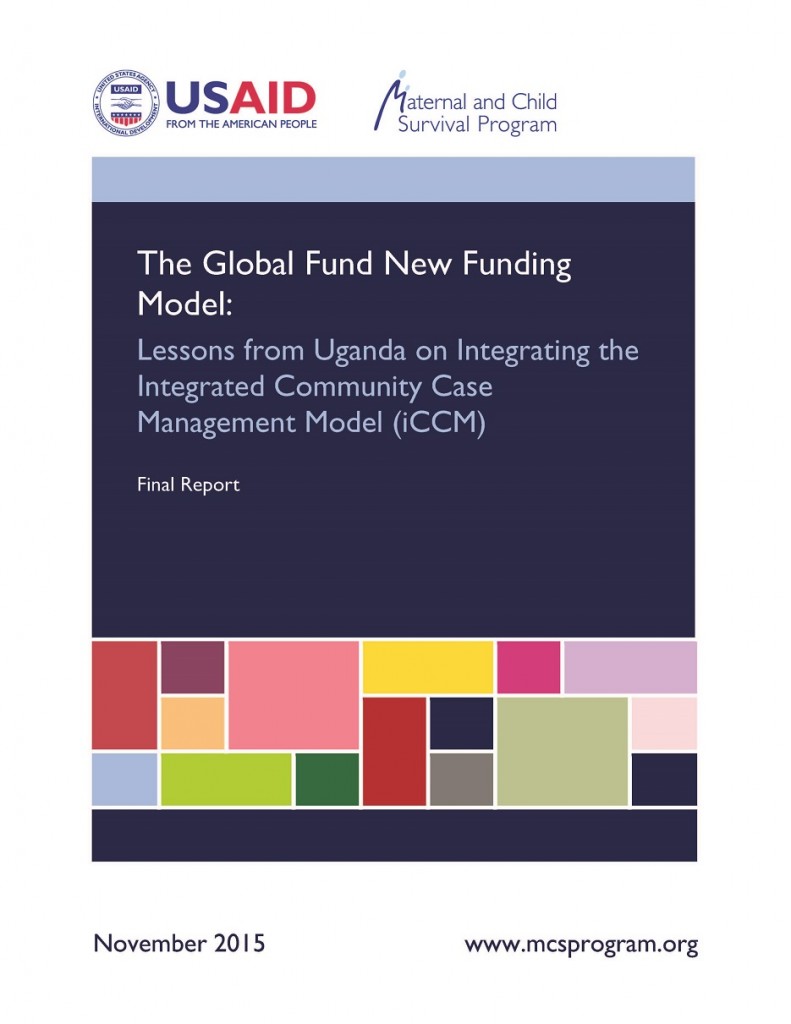
This case study reviews Uganda’s experience with integrating the integrated community case management (iCCM) into the Global Fund New Funding Model’s (NFM) concept note for malaria. This case study explores some of the challenges experienced by, and lessons learned from, the Uganda experience, and discusses broader issues about developing a Global Fund NFM concept note […]